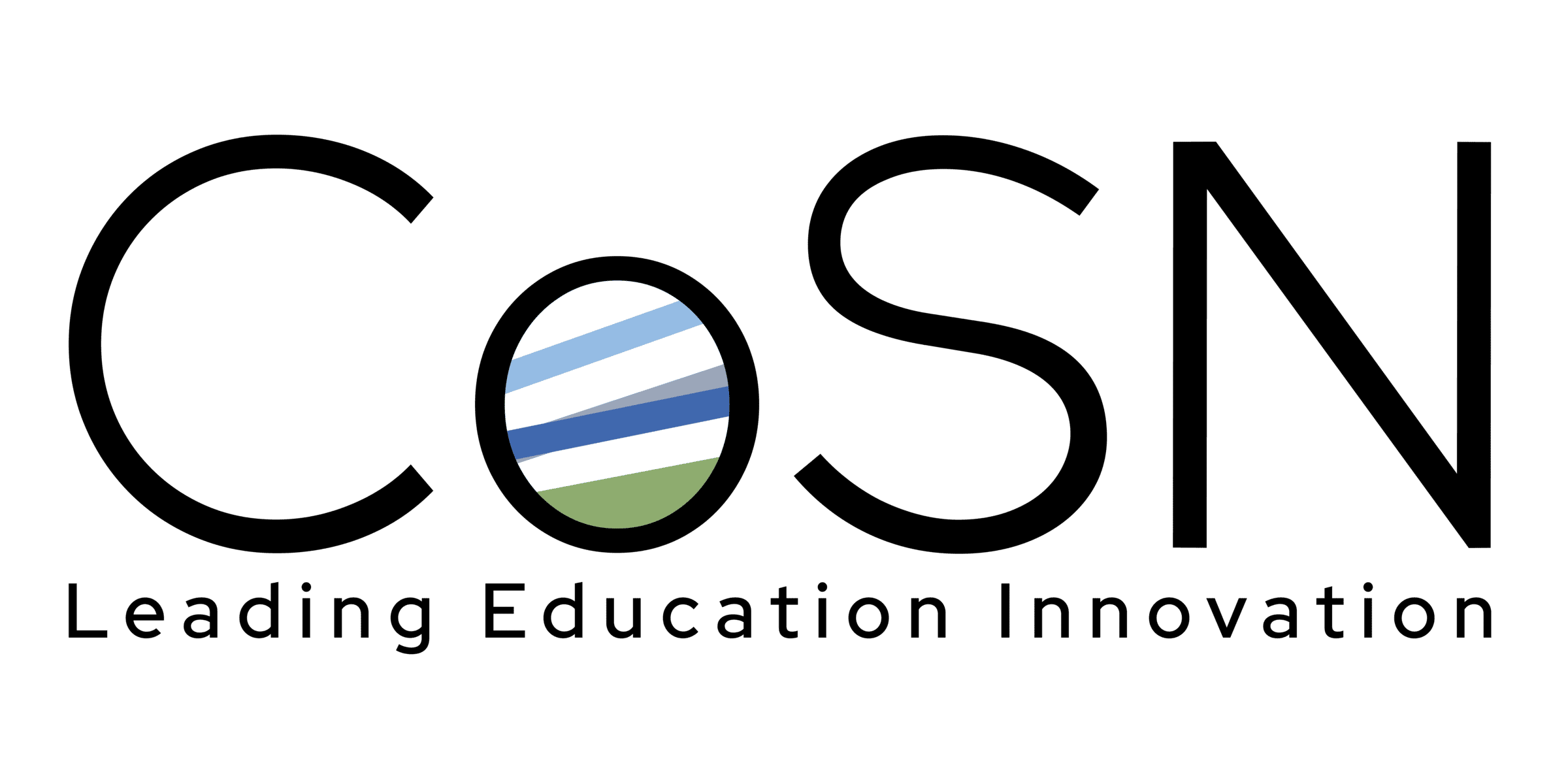Annual Report Reveals Significant Shifts in K-12 Innovation Landscape
Washington, D.C. (February 7, 2024) – CoSN today issued the 2024 global Driving K-12 Innovation report, highlighting Hurdles (challenges), Accelerators (mega-trends) and Tech Enablers (tools) impacting education innovation for the year ahead.
CoSN’s Driving K-12 Innovation Advisory Board — made up of 140+ global educators and IT professionals — selected three top Hurdles, Accelerators and Tech Enablers impacting education technology for the coming year. This year’s top topics shifted more from 2023 to 2024 than they have in any of the past five cycles of the project, underscoring a turning point in education and emphasizing the need for collaborative efforts.
“The best aspect of the annual Driving K-12 Innovation report is not to tell education leaders ‘the answer’ about K-12 innovation today. Rather, it is a thoughtful framework for thinking about innovation focused on Hurdles, Accelerators and Tech Enablers,” said Keith R. Krueger, CEO of CoSN. “Too often EdTech stalwarts start with the technology when advocating innovation. CoSN flips that tendency and starts with the ‘why’ (Hurdles).”
To deliver extraordinary student outcomes, the three most important Hurdles and Accelerators for schools to address in the year ahead are:
Hurdles
Roadblocks that force schools to slow down, prepare themselves and make a leap.
- Attracting & Retaining Educators and IT Professionals. Hiring and keeping school staff is a significant problem for school systems; many educators are experiencing social and emotional burnout, as well as low pay compared to other sectors, causing them to set aside their passion for teaching and leave the field.
- Ensuring Cybersecurity & Safety Online. Teaching, learning and conducting business in education with digital tools is now a baseline requirement for teachers, students and administrators. Schools must be proactive in building systems to protect and empower educated users to safely learn and grow with digital technologies.
- Scaling Innovation & Inertia of Education Systems. Schools are challenged to engage in and effectively scale innovation — adapting what is working well and scaling it out across a school, district or state/country.
Accelerators
Real-world megatrends or catalysts that help motivate and increase the speed of innovation.
- Changing Attitudes Toward Demonstrating Learning. There is a rising groundswell of discussion around assessing, documenting, communicating and assigning value to student learning — as well as relating this learning to higher education, vocational training, career pathways and living in the real-world.
- Building the Human Capacity of Leaders. Strengthening the professional community of schools and providing opportunities for educators and all K-12 professionals to learn and master new skills can open the door to innovative practices that can enhance student experiences.
- Learner Agency. It’s all about students as leaders in their learning; reconceptualizing their role from that of “student” to that of “learner.” When immersed in a strong learning environment, learners could transform from order-takers to innovators.
The three most important Tech Enablers for schools to leverage in 2024 are:
Tech Enablers
The tools that grease the wheels for schools to surmount Hurdles and leverage Accelerators.
- Generative Artificial Intelligence (Gen AI). Generative artificial intelligence has emerged as a transformative force in education, changing both how students learn and what they need to learn. As school systems worldwide explore the benefits and challenges of this technology, they are both developing and seeking expert guidance to meet the urgent need for policies and processes that ensure the safe, effective and responsible use of Gen AI for all stakeholders.
- Analytical & Adaptive Technologies. Analytics refers to the process of analyzing data collected about student learning and the opportunity to leverage data to inform instructional decision making. Adaptive technologies are tools that adapt to the student based on their interactions with the technology.
- Rich Digital Ecosystem. Connecting systems or digital environments can form powerful digital ecosystems for enabling student learning and/or supporting education administration. These interconnected systems of online and virtual spaces can span formal school settings and beyond.
Download the full report at no-cost here. Learn more about the Driving K-12 Innovation series at cosn.org/edtech-topics/driving-k-12-innovation/.
CoSN gratefully acknowledges its sponsors for supporting the Driving K–12 Innovation series: HP and Palo Alto Networks.
About CoSN
CoSN, the world-class professional association for K-12 EdTech leaders, stands at the forefront of education innovation. We are driven by a mission to equip current and aspiring K-12 education technology leaders, their teams, and school districts with the community, knowledge, and professional development they need to cultivate engaging learning environments. Our vision is rooted in a future where every learner reaches their unique potential, guided by our community. CoSN represents over 13 million students and continues to grow as a powerful and influential voice in K-12 education. cosn.org
MEDIA CONTACT:
Makenzie Carlin, mcarlin@fratelli.com, 703-967-6954

